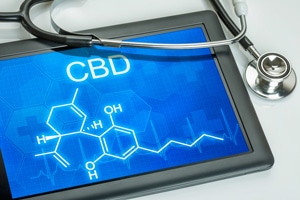October 30, 2017
CBD, Diabetes, And Sleep
By Michael D. Shaw
This column first covered Cannabidiol–CBD–in April, 2016. In that piece, we identified this Cannabis extract as a compound that not only has no psychotropic effects, but as the main source of Cannabis’ medicinal properties. A limited body of research suggests anti-seizure, antioxidant, neuroprotective, anti-inflammatory, analgesic, anti-tumor, anti-psychotic, and anti-anxiety properties. Perhaps the most publicized story involved successful treatment of then five-year-old Charlotte Figi, whose intractable epilepsy showed remarkable improvement upon being treated with CBD.
A follow-up column from May, 2017 explained how CBD was being used by NFL players to treat their chronic pain. We now take a look at how CBD could also have benefits in treating type 2 diabetes.
The classic symptom of diabetes (all types) is hyperglycemia. Type 1 sufferers are unable to produce insulin (or sufficient amounts of it), and must rely on exogenous insulin, via injections or a pump system. Type 2 diabetics are unable to maintain euglycemia (normal blood glucose levels), owing to some form of insulin resistance.
Without insulin, a type 1 will soon fall into diabetic ketoacidosis, which, absent treatment, will likely be fatal within a week or two. For type 2s, the effects of hyperglycemia are usually long-term, with cardiovascular, renal, neurological, and ophthalmological implications. In some cases, weight loss, exercise, and improving one’s diet can be a successful treatment. For others, though, some pharmaceutical intervention is required. Generally, this starts with Metformin, and can work its way up to exogenous insulin.
Can CBD be of use for diabetics? Let’s examine some interesting research and related news…
1. A fairly large study from 2013, entitled “The Impact of Marijuana Use on Glucose, Insulin, and Insulin Resistance among US Adults” concluded that “[M]arijuana use was associated with lower levels of fasting insulin and HOMA-IR (homeostasis model assessment of insulin resistance), and smaller waist circumference.” Bear in mind, though, that the study population included both diabetic and non-diabetic participants. Moreover, current marijuana users represented only 12.4 percent of the group.
Although real blood tests were, of course, performed, all other study parameters were obtained via questionnaire. Finally, whole marijuana usage, and not CBD was being studied here.
2. The discoverer of CBD, Dr. Raphael Mechoulam, has been collaborating with ISA Scientific, now rebranded as Ananda Scientific. CBD-induced therapy seems to derive from its anti-inflammatory properties. According to CEO Mark J. Rosenfeld, “Unlike insulin and other existing medications for diabetes, CBD may actually suppress, reverse and perhaps cure the disease.”
3. CBD and another non-psychotropic cannabinoid THCV (Tetrahydrocannabivarin) were shown to be of good effect in glycemic and lipid parameters in patients with type 2 diabetes. This study, however, favored THCV.
Remember that insidious connection between poor sleep and type 2 diabetes? It seems that CBD can promote better sleep, depending on dosage. For one thing, it is anxiolytic (anti-anxiety). For another, it seems to do wonders for chronic pain.
NYC-based Dr. Junella Chin is a leading proponent of cannabis-based therapies. A chronic pain survivor herself, she was driven to this approach as a result of serious athletic-related back injuries, and her unwillingness to go down the road of conventional pharmaceutical and surgical therapies.
“We started treating adult onset [type 2] diabetes with CBD around 2007, after our patients started reporting an improvement in blood glucose levels after using cannabis for their other diseases (i.e. neuropathy, pain).” Chin stresses to her patients that CBD treatment for diabetes must be combined with a dietary change for maximum effect.
With CBD supplements now readily available, and research continuing into this valuable medicinal, we look forward to new breakthroughs for this seemingly cure-all Cannabis extract.

